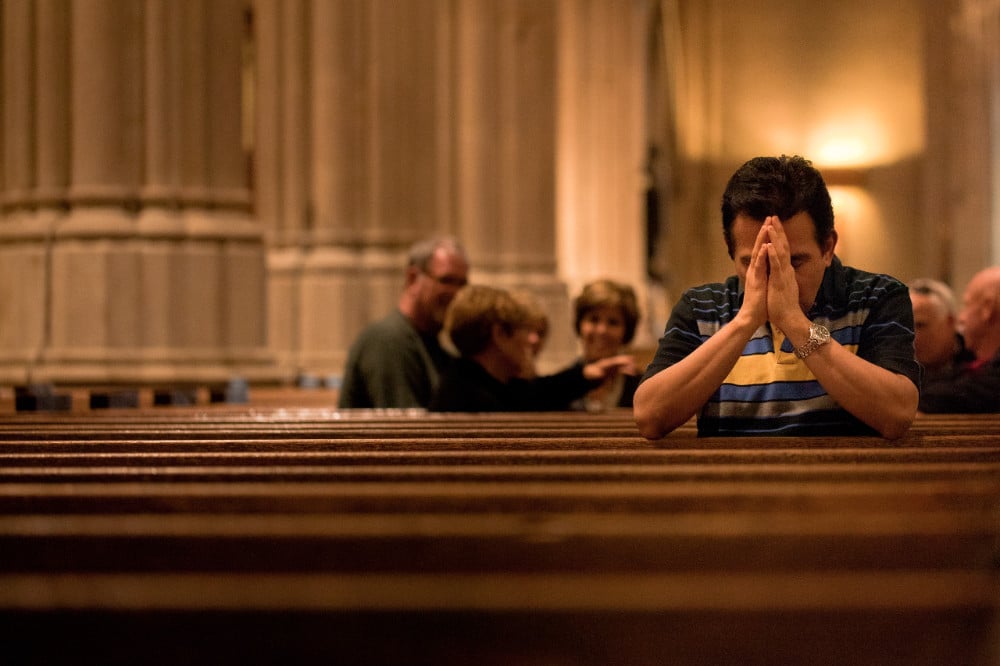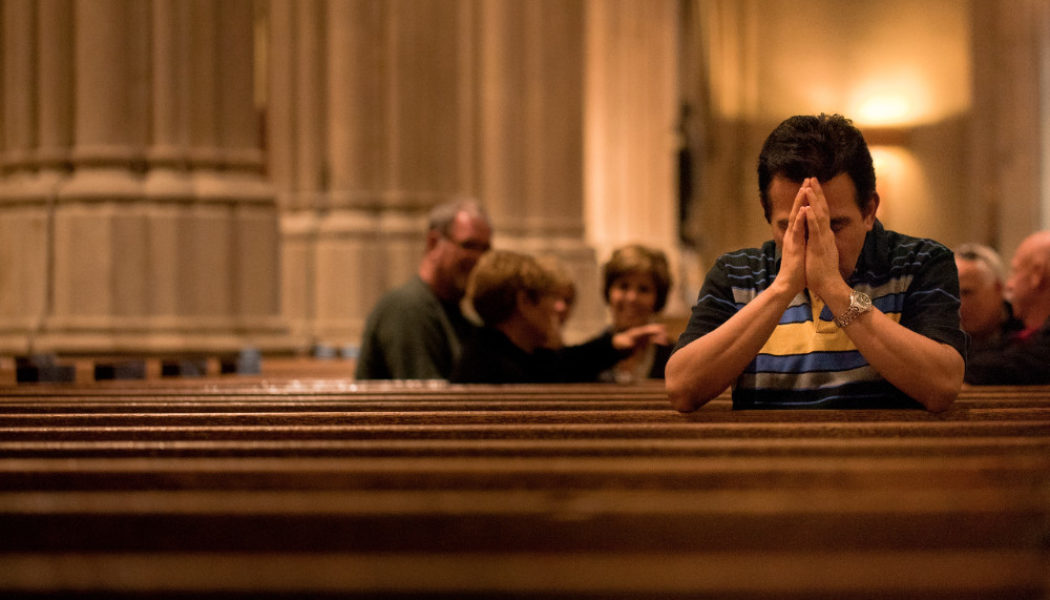
“Seriously,” he says, “do you understand a word he’s saying?” The man two rows behind us at Mass, sitting with his wife in the last row, has been talking the whole time. Sometimes about the Mass and sometimes about almost any subject under the sun.
I know few people are as easily distracted as I am, but still, WHY IS HE TALKING THROUGH MASS? I resist the temptation to turn around and ask him, “Why are you here, if you’re not interested in what’s going on?”
The priest lived in China till he was 12 and speaks with a Chinese accent, but he speaks understandably. Sometimes he blends two words, when he can’t say the first letter of the second word sharply enough for American ears. But you can only say he can’t be understood if you assume he can’t be understood, because you assume anyone with a Chinese accent can’t be understood. BECAUSE YOU’RE NOT ACTUALLY LISTENING.
At the end of Father’s homily, the man says, “Well, whaddaya know?” in a happy voice. He’s enjoyed the homily. I’m pleased. Then he says, “Nine minutes!”
Father pauses for a few seconds before starting the Creed, and he says, “Get movin’.” He continues talking through the Eucharistic prayer and then through Communion, up to and after going forward. Not quite in a normal speaking voice, but in three-quarters of a normal speaking voice.
He seems not to understand what worship requires. You can’t talk and concentrate on what’s going on at the same time. I finally decided to say something to him after Mass, as nicely as possible, about how distracting some people find conversation behind them. But he and his wife left after Communion.
Thinking about this the next day, I saw he’d annoyed me more than I’d realized. Many people don’t realize how hard it is for some of us to stay concentrated on the subject, and I’d had an hour of continuous distractions. It’s mentally exhausting.
And this isn’t unusual behavior, even at Mass. I’ve had to shush friends and acquaintances talking when they shouldn’t, and my wife has sometimes felt she had to shush me.
Sometimes they (my wife would suggest I write “we”) didn’t know their voice carried or didn’t think their talking would bother anyone, sometimes they didn’t care because people talking didn’t bother them, or they felt they had to say what they had to say, or they were excited about whatever they were saying, or they were bored and didn’t handle boredom well, or they didn’t understand the gravity of the event, or they were just generally clueless about the world around them.
When I told friends about the man behind us at Mass, everyone sympathized. Most people had the same experience. And many of us, including me, leaned to the critical explanations. The man was just rude and self-centered or he didn’t understand the Mass, because if he did understand the Mass, he’d shut up and worship Jesus. They would have asked him the same question I wanted to ask: Why are you here?
Many of us, but fortunately not everyone. One friend, the writer Joanne McPortland, pressed the point that we should assume mental illness, autism, dementia or some other reason he didn’t have a filter, before we accused him of deliberately talking when he should have been quiet. Not knowing why he was talking, we should pray for him and let it go.
She pointed out that if others, including his wife, didn’t try to quiet him, they may know why he’s talking. In our parish, people might well know a fellow parishioner’s struggles and accept him as he is. Better he’s there than not there.
Later, I realized that if the couple had noisy children, I’d have accepted the distractions without a second thought, because for me children add to the pleasures of Mass. I also realized that the couple were sitting in the back row, which may have meant that one of them knew he was going to talk and wanted to bother as few people as possible.
Joanne being right, we are left with: 1) This person is annoying; 2) You don’t know why he’s annoying; 3) Because you don’t know, you must assume the best, that he doesn’t know better or he can’t help it; 4) That “do unto others” and “turn the other cheek” applies, even if he is being rude; 5) Therefore, you must make of the situation what you can, and that may mean mortifying your need (and it’s a real need) for quiet and expressing active charity for the annoying person by praying for him.
David Mills writes from Pennsylvania.









